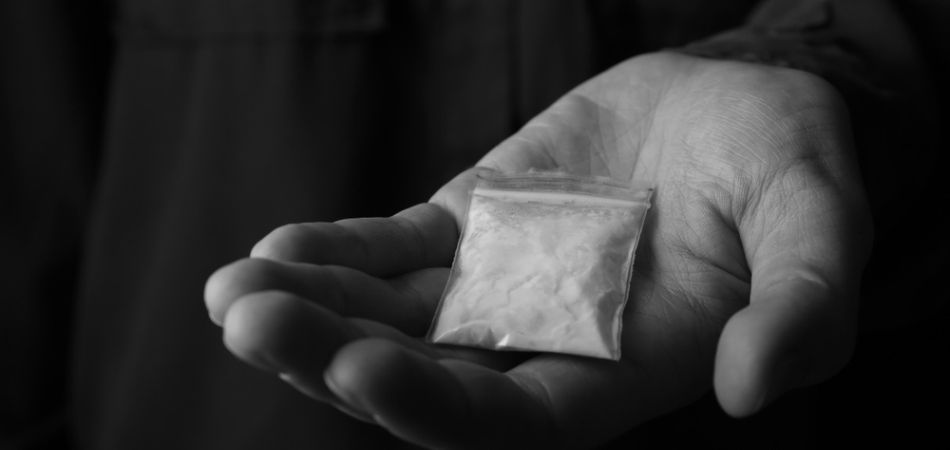Last Updated:
October 10th, 2025

Cocaine’s effects are powerful and almost immediate, creating a rushing high in a matter of minutes.
Yet the effects that linger afterwards are often overlooked. The after-effects range from uncomfortable to profoundly distressing, and their potency can be enough to drive repeated use as a form of escape.
What is meant by the “after-effects” of a substance?
The “after effects” of a drug refer to the sensations and changes that happen in the body and mind as the immediate high of a drug wears off.
Most of us have experienced the after-effects of drinking alcohol, which is a painful hangover the next day. Many people feel “energy crashes” a few hours after drinking coffee, and even prescription drugs carry potent after-effects that often play a role in addiction development.
Behavioural researchers and addiction experts pay a lot of attention to the comedown, crash or “rebound effect” after taking a substance, especially a stimulant as powerful as cocaine. After-effects of cocaine can become a powerful force that drives a person to repeated use, or to seek escape in other substances.
Distinguishing after-effects from the intoxication itself can help you recognise the strength of the drug and also contextualise the negative feelings felt in the next few days. After-effects reveal the strain cocaine places on the body and can serve as a warning sign before addiction develops or worsens.
What are the after-effects of cocaine?
Cocaine is a powerful stimulant that is typically snorted in powder form, and its immediate effects are relatively short-lived, felt in the body for around 15 to 30 minutes.
The after-effects, however, are very wide-ranging and can be devastating for both the body and mind. It will help us to distinguish the short-term and long-term after-effects of cocaine use. The severity of after-effects will depend on factors like how much is taken, tolerance, and whether it’s combined with other drugs. Effects can include:
Short-term after-effects of cocaine
For short-term after-effects, we can imagine a scenario of a person who spent a night using cocaine socially, who has no significant previous use. After snorting cocaine with friends in a bar, the next 30 minutes to an hour made them feel more sociable and filled with excited energy. The effects start to fade further into the night, so more is taken to maintain this high.
The next day brings a range of uncomfortable after-effects, strong enough to force them into a day off work, drawing the curtains and avoiding all phone calls. The effects felt this day include:
- Mental and physical exhaustion
- Broken sleep despite being exhausted
- No appetite throughout the day
- An increased heart rate and pains in the chest
- Sweating and feeling disoriented
- Anxiety about what they can and can’t remember from last night
- General low mood and depression
These effects can last anywhere from a few hours to a couple of days. Some people try to dismiss it as “one bad hangover,” but if it becomes more common, the likelihood of more serious issues increases.
Long-term after-effects of cocaine
Now, picture someone who has been through the above dozens of times over the years. It used to be only a one-off, but now it’s a standard part of their week. When friends ask, they say they’re still in control of their use, but the body and mind tell a different story.
Over time, the after-effects of repeated cocaine abuse become harder to hide and harder for others to ignore. This person has grown noticeably thinner and claims they’re sick a lot of the time. Their relationships and employment are unstable, yet they manage to conceal their struggles from others.
The long-term effects of cocaine that they regularly experience include:
- Persistent strain on the heart
- High blood pressure increases the likelihood of a heart attack or stroke
- Severe weight loss
- Stomach pains, with recurring stomach ulcers
- Waves of severe depression and anxiety
- Constant paranoia
- Memory and cognition problems
The long-term effects of cocaine make every aspect of life harder to manage, and the person feels as though turning back to cocaine use is the only way to quell the discomfort and pain. Their cocaine addiction deepens, and a week without taking it puts them into a state of cocaine withdrawal.
Is there a timeline for cocaine withdrawal?
A timeline for cocaine withdrawal will generally depend on factors like frequency of use, drug quantity and quality, and whether it is taken with other drugs. Each case is specific, but a common timeline for general symptoms after quitting may appear as:
- First 1 to 3 days: This “crash” phase is marked by tiredness, oversleeping, insomnia, depression and sadness. Some people experience an inability to feel pleasure. Cravings start to manifest.
- Days 4 to 7: Early withdrawal symptoms become persistent and can intensify. Vivid dreams and nightmares are common, and many people enter a notable depressive phase. Eating and drinking well are important, as many people neglect their nutrition, which is essential for healthy detoxification.
- 1 to 2 weeks: In the first 2 weeks, most physical withdrawal symptoms will intensify until they reach their peak. It may be difficult to contextualise, but it can serve as a sign that the body is closer to complete detoxification and entering deeper recovery.
- After 2 weeks: In this time, psychological cravings can remain as strong, but the body is physically recovering. Emotional instability can be a challenge, with mood swings and agitation remaining frequent. The brain chemistry is stabilising and adjusting to life without cocaine’s presence.
What can I do to help manage cocaine’s after-effects?
People experience cocaine’s after-effects in different ways. A person might have had an intoxicating experience that was too intense, feeling mentally uncomfortable about the night, on top of the physical cocaine comedown. Others experience an abstract sense of disappointment or difficulty in coming back to reality, dangerously triggering a desire to retake cocaine.
To help manage a cocaine comedown, it can be essential to use these small and practical acts of self-care:
- If you’re awake in the day, be sure to bathe and get dressed
- Make efforts to eat well, with fruits, vegetables and protein
- Take a break from your normal activities, and be kind to yourself
- Get plenty of rest
- If you’re worried, speaking with a loved one can bring relief
If cocaine comedowns and lingering effects are becoming a regular cause for concern, it may be essential to reach out to professional treatment providers before your physical and mental health starts to nosedive.
Where can I get help for cocaine addiction?
If you’re caught in the throes of cocaine addiction, you’ve likely experienced these after-effects regularly, and you may know that they will get worse unless the cocaine addiction is worked on.
Our team is here to help, even if you need someone to talk to. Reach out to us to take the first step towards the kind of life you want, free from the grips of addiction.




